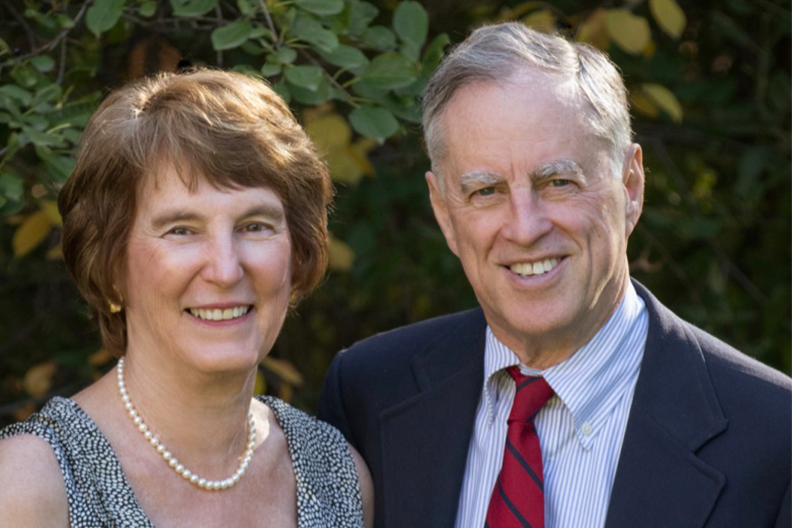"It’s an exciting time in medicine. Science is expanding exponentially, and we want to give Duke every opportunity possible to be leaders in all areas of medicine.” - Georgeanna J. Klingensmith, MD’71

Georgeanna J. Klingensmith, MD’71, was no stranger to medicine when she arrived on the Duke University campus in 1967. Raised by two doctors, she was inspired by childhood dinner table conversation to pursue a career in the field and ultimately to become a pediatric endocrinologist. From the start, Klingensmith took a special interest in pediatrics. “During my various rotations, with every case, I found myself concerned about the welfare of the children involved,” she said.
With a strong foundation built during her four years at Duke, Klingensmith continued her medical education at the University of Colorado School of Medicine, before going on to complete training as a pediatric endocrinologist at St. Louis Children’s Hospital and The Johns Hopkins University School of Medicine. Before leaving Colorado, she met and married William C. Klingensmith, III, MD, a radiologist with a subspecialty in nuclear medicine who is now the former chief of the Division of Nuclear Medicine at the University of Colorado School of Medicine.
Recently retired from her role as the Director of the Pediatric Type 1 Diabetes Care and Research Program at the Barbara Davis Center for Diabetes at the University of Colorado, Klingensmith positively reflects on the significant impact Duke professors had on her during medical school. “I had so many incredibly compassionate teachers while I was training at Duke,” she said. “They truly cared about medical students. They taught us about the power of both clinical care and research to produce better patient outcomes.”
It’s this experience, her lifelong love of pediatrics, and her passion for hiring and promoting the best people possible that inspired Klingensmith’s generous bequest to fund a professorship in pediatrics at Duke University School of Medicine. “Training young doctors, residents, and fellows is especially important, and having skilled faculty members who are motivated to encourage innovation is critical,” Klingensmith said.
Her commitment to fund a professorship will make it possible for the Department of Pediatrics to recruit and retain a highly skilled authority in academic medicine, someone with talents that will help fill potential gaps in areas of interest that may not otherwise be supported due to a lack of discretionary funding. Klingensmith’s vision is for Duke to have the resources to offer a professorship that is meaningful, enabling all parties to focus their time and efforts on research without the burden of funding a salary.
“It’s my hope that this professorship will afford the department the opportunity to drive innovation and engage in outcomes-based research, all the while teaching the next generation of physicians to deliver excellent care,” Klingensmith said.
The Georgeanna J. Klingensmith, MD, and William C. Klingensmith III, MD, Professorship is uniquely flexible, allowing the department to invest the resources for either assistant, associate, or full professors, depending on the current recruitment needs of the department. The donors’ experience in academic medicine and their insights into the evolving needs of a department over time helped shaped this creative approach to the endowment. Ultimately, the gift will allow the department chair the flexibility to make decisions that will be most beneficial to the Department of Pediatrics.
“Every area of medicine is expanding dramatically. There are really no limitations. The field is wide open for medical innovation, and we hope this gift provides Duke with the opportunity to engage pioneers that will inspire groundbreaking advancements in pediatrics,” Klingensmith said.
“We are grateful for the vision and generosity of the Klingensmiths,” said Ann Reed, MD, chair of the Department of Pediatrics. “This bequest will be influential to future pediatricians, their research, and the care they provide to patients and families.”